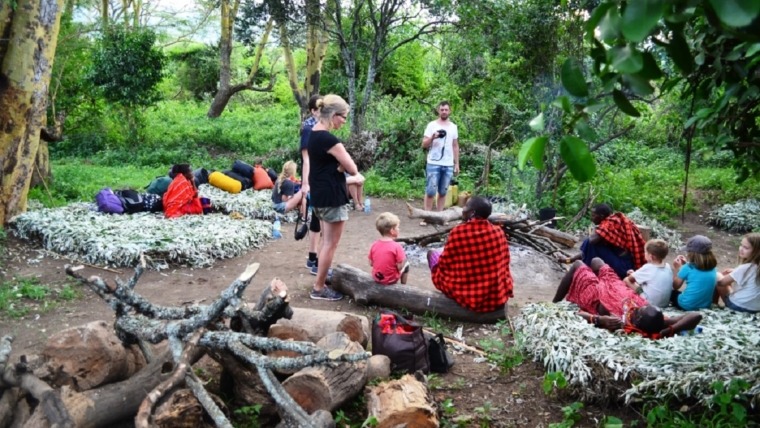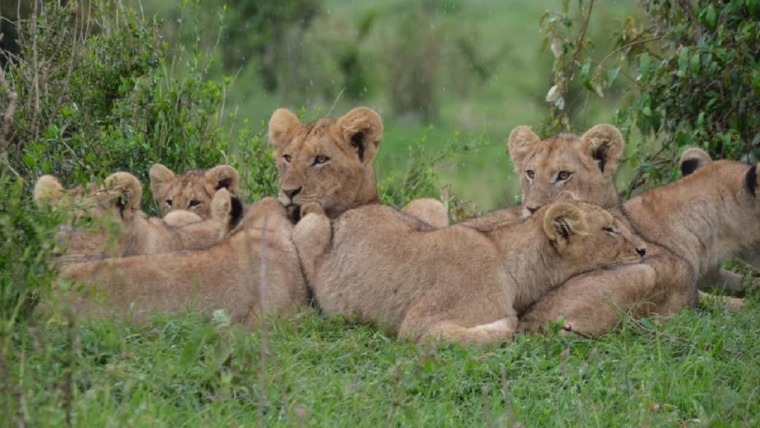
Written by Tracy Bell
Gone are the days when “Safari” was only for the elite of Britain’s colonial population. Nowadays the Dark Continent is accessible to anyone on any budget. And it is no longer about hunting or simply wildlife spotting. Increasingly, travellers are looking for ways to connect with people, to find out how other cultures live, what they eat, what their houses are like, and what jobs they do. Of course, travellers coming to Africa want to see wildlife, but sprinkle a smattering of meeting people through the safari and you enhance the experience and bring more life to the trip. Although community-based tourism is relatively new in Africa, there are some great experiences you can include in your safari to break up the game drives.
One of the simplest, and most overlooked, ways of getting to know a culture is to talk to your guide. Many people fly in and out of the game reserves and don’t have time to interact with a guide on the ground (they might talk to their driver on a game drive). Travelling by road rather than flying gives you more opportunity to see more of the country and ask your guide lots of questions. Moreover, you can choose a tour company that uses local guides in some places on your itinerary meaning that your tourist dollar is spread more widely and you are getting the expert knowledge of someone who lives in that area. Examples include:
- In Kenya at Lakes Naivasha and Baringo there are local guides who can take you on a boat or for a walk
- MCF Panairobi (http://mcfpanairobi.or.ke/) offers walking tours with street kids in the Nairobi CBD
- In Cape Town and Johannesburg you can do township tours
- In the Okavango Delta in Botswana you can take a mokoro (dugout canoe) trip with local polers
You get the benefit of the experience of someone who has grown up in that area and they get access to some tourist dollars. If you are travelling with a tour company, ask them if they use local guides.

Homestays or just a meal with a family gives you a perfect opportunity to see real-life in your destination. If you are not completely comfortable with imposing yourself on a family, you can request your driver-guide take you to a local restaurant instead of the tourist restaurants. If you do go for a meal with a family, there is sometimes the opportunity for a cooking lesson before the meal and you all eat what you produce. Mwenya Uganda (http://www.mwenya-uganda.org/) is a community organisation that hosts such an experience as a day trip from Kampala.
Homestays are not for everyone, but there are some places that provide a great balance between having your own privacy while being part of the community. Maji Moto (http://majimotomaasaicamp.com/) near the Maasai Mara in Kenya is one example: you have your own hut close to the Maasai village, your meals are prepared by the Maasai and you participate in village life during the day.
Visiting community-based organisations is becoming a popular offering of many tour companies. You might spend a day teaching English in a school, tutoring students in a library, playing with children at an orphanage or planting trees. Or you can simply visit the projects to see the positive development work occurring in the communities. If you want to bring donations, visit Pack For A Purpose (www.packforapurpose.org) and search for your accommodation and/or tour operator. There you will find a list of supplies you can donate to the projects your tour operator/ accommodation supports. Investours (http://investours.org/home/) in Dar es Salaam, Tanzania is a day experience where your fee becomes a micro-loan for one entrepreneur who you choose through the course of the day as you visit several small businesses and get to understand daily life.
There are many tribes throughout the African continent that have a representation in the form of a cultural village or a living museum. In Kenya, there are several Maasai villages around the Maasai Mara, Samburu villages around Samburu National Reserve, an El Molo village at Lake Turkana, and a Kikuyu cultural centre at Githunguri. In Namibia, there is a Damara living museum near Twyfelfontein and a Himba village near Kamanjab. In Tanzania, you can visit the Bushmen near Lake Eyasi and in Botswana, there are also opportunities to see the San Bushmen around Ghanzi.
Festivals are a great way to experience local culture if you can time your trip well. The Lake Turkana Cultural Festival in northern Kenya occurs each May and brings together fourteen ethnic groups in a flurry of singing and dancing. Lake of Stars in Malawi and Rift Valley Festival in Kenya are two contemporary music festivals both happening around August or September each year. There are plenty of festivals which can usually be found on the internet or by asking your tour operator.
As you can see volunteering for two weeks is not the only way to engage with communities as you travel. Throughout the African continent, there are various opportunities to meet local people and learn their cultures and traditions. As you plan your African safari keep your eye out for different experiences – trawl travel forums, blogs and ask your tour operator – so that your safari embraces all aspects of the country.
How To Make The Most Of A Safari How To Make The Most Of A Safari



